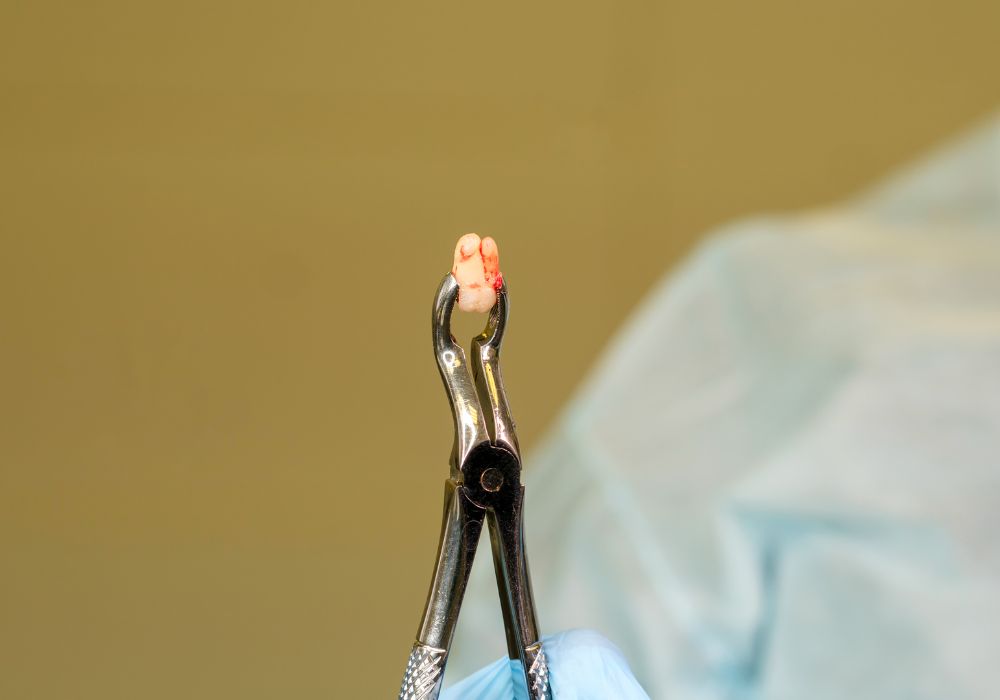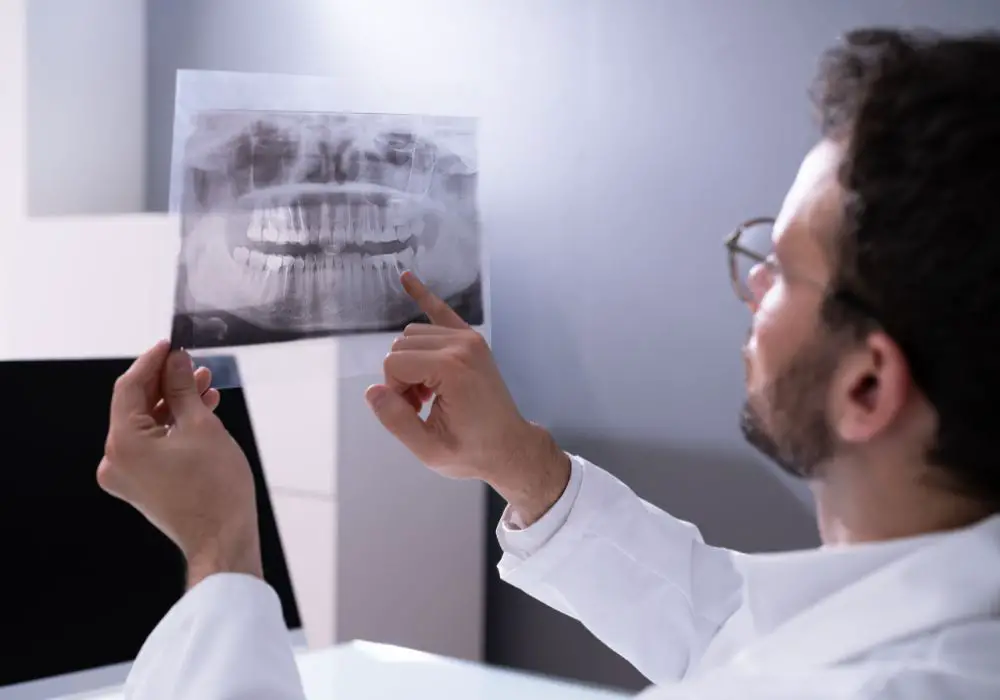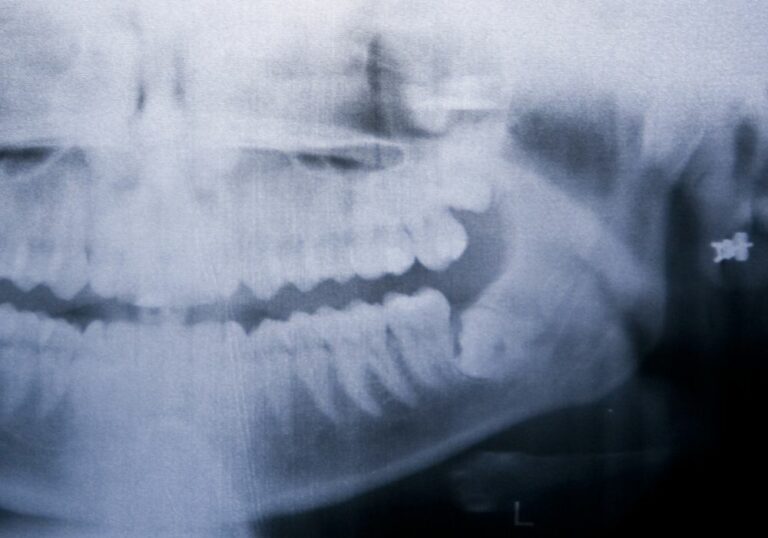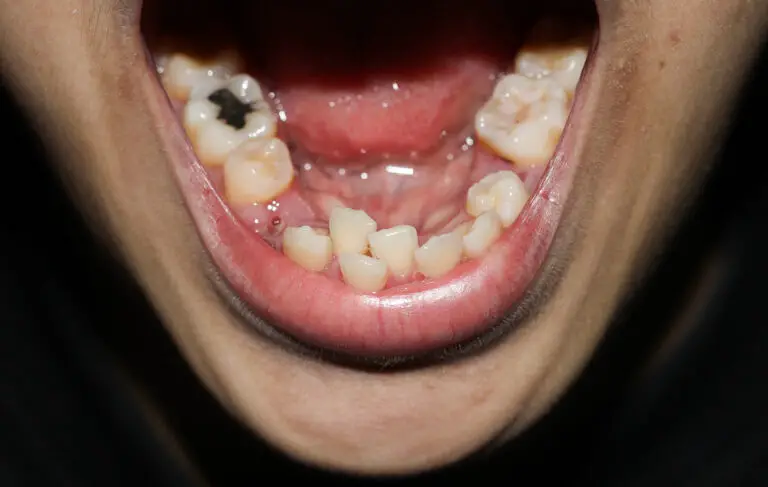If you’re in your late teens or early twenties, you may be wondering whether you should have your wisdom teeth removed. While many people experience pain or discomfort when their wisdom teeth come in, not everyone does. So, can you keep your wisdom teeth if they don’t hurt? The answer is yes, but it depends on your individual situation.
There are several factors to consider when deciding whether to keep your wisdom teeth. For example, if your wisdom teeth are healthy, fully erupted, positioned correctly, and able to be cleaned as part of your daily hygiene practices, you may not need to have them removed. However, if your wisdom teeth are causing problems such as pain, infections, cysts, tumors, or signs of gum disease, your dentist or oral surgeon may recommend that you have them removed. Ultimately, the decision to keep or remove your wisdom teeth should be made in consultation with your dental professional.
Understanding Wisdom Teeth
What are Wisdom Teeth?
Wisdom teeth, also known as third molars, are the last set of permanent teeth to grow in the back of your mouth. Most people have four wisdom teeth, one in each corner of the mouth. However, some people may have fewer or none at all.
Wisdom Teeth Growth Timeline
Wisdom teeth usually start to erupt between the ages of 17 and 25. However, the exact timeline can vary from person to person. Some people may experience the eruption of their wisdom teeth as early as 13 years old, while others may not see them until their late 20s or early 30s.
It is important to note that not everyone’s wisdom teeth grow in the same way. Some people may have fully erupted wisdom teeth, while others may have partially erupted or impacted wisdom teeth. Partially erupted wisdom teeth can create an opening that allows germs and bacteria to enter into your gums, increasing the risk of infection. Impacted wisdom teeth can cause pain, swelling, and other dental problems.
Consulting with your dentist or oral surgeon is crucial in determining the best course of action for your wisdom teeth. They can help you decide whether to keep or remove your wisdom teeth based on your specific situation.
Reasons for Wisdom Teeth Removal

If your wisdom teeth are causing you pain or discomfort, your dentist or oral surgeon may recommend that you have them removed. Here are a few reasons why wisdom teeth removal may be necessary:
Impacted Wisdom Teeth
Wisdom teeth that are impacted, or trapped beneath the gum line, can cause a host of problems. They can push against neighboring teeth, causing pain and discomfort. They can also make it difficult to clean your teeth properly, leading to decay and gum disease. In some cases, impacted wisdom teeth can even lead to cysts or tumors.
Crowding
If your mouth is not large enough to accommodate your wisdom teeth, they may cause crowding. This can lead to misaligned teeth, which can be difficult to clean and may cause problems with your bite. Removing your wisdom teeth can help prevent crowding and keep your teeth properly aligned.
Infection
Wisdom teeth that are partially erupted can be difficult to clean, making them more susceptible to infection. Infection can cause pain, swelling, and even fever. In some cases, infection can spread to other parts of your body, leading to more serious health problems.
If you’re experiencing any of these issues with your wisdom teeth, it’s important to talk to your dentist or oral surgeon about your options. Removing your wisdom teeth may be the best course of action to prevent further problems down the road.
Wisdom Teeth That Don’t Hurt
If your wisdom teeth are not causing any pain, you may wonder if you can keep them. The answer is yes, you can keep your wisdom teeth even if they don’t hurt. However, the decision to keep or remove them should be made in consultation with your dentist or oral surgeon.
While many people experience pain or discomfort when their wisdom teeth grow in, others have no symptoms at all. In fact, some people may not even know they have wisdom teeth until they visit the dentist for a routine exam.
Even if your wisdom teeth are not causing any pain, there are some reasons why your dentist or oral surgeon might recommend removing them. For example, impacted wisdom teeth that are not removed can lead to a variety of dental problems, such as:
- Crowding of other teeth
- Tooth decay
- Gum disease
- Cysts or tumors
If you decide to keep your wisdom teeth, it’s important to take good care of them. This includes brushing and flossing regularly, as well as visiting your dentist for regular checkups. Your dentist can monitor the health of your wisdom teeth and recommend treatment if any issues arise.
In summary, you can keep your wisdom teeth even if they don’t hurt, but it’s important to consult with your dentist or oral surgeon to determine the best course of action. If you do decide to keep your wisdom teeth, be sure to take good care of them to prevent dental problems down the line.
Potential Risks of Keeping Wisdom Teeth

If your wisdom teeth are not causing any pain, you may wonder if it is okay to keep them. While it is possible to keep your wisdom teeth, there are some potential risks to consider.
Long Term Effects
One potential long-term effect of keeping your wisdom teeth is that they can contribute to dental crowding. Even if your wisdom teeth are not causing any pain, they can still push against your other teeth and cause them to shift out of place. This can lead to bite problems and even make it harder to clean your teeth properly.
Another long-term effect of keeping your wisdom teeth is an increased risk of tooth decay and gum disease. Wisdom teeth are harder to clean than other teeth because they are located at the back of your mouth and can be difficult to reach with a toothbrush or floss. This can make them more vulnerable to decay and gum disease.
Potential Complications
In addition to the long-term effects of keeping your wisdom teeth, there are also some potential complications to consider. For example, wisdom teeth can become impacted, which means they are unable to fully emerge from the gums. This can lead to pain, infection, and even damage to other teeth.
Another potential complication of keeping your wisdom teeth is the development of cysts or tumors. While this is rare, it is still a possibility to consider.
Overall, while it is possible to keep your wisdom teeth if they are not causing any pain, there are some potential risks and complications to be aware of. It is important to speak with your dentist about your specific situation and whether or not keeping your wisdom teeth is a good idea.
Pros and Cons of Keeping Wisdom Teeth
When it comes to wisdom teeth, there are both pros and cons to keeping them. Here are some of the advantages and disadvantages to consider:
Pros
- No surgery required: If your wisdom teeth are healthy and not causing any problems, keeping them means you won’t have to undergo surgery to have them removed.
- Extra chewing power: Wisdom teeth can provide extra chewing power, which can be helpful if you have a diet that includes tough or fibrous foods.
- No gaps in your smile: Removing wisdom teeth can sometimes cause gaps in your smile, which may be undesirable for some people.
Cons
- Increased risk of infection: Wisdom teeth can be difficult to clean properly, which can increase your risk of developing gum disease or tooth decay.
- Crowding: If your jaw is not large enough to accommodate your wisdom teeth, they can cause crowding and shifting of your other teeth.
- Potential for complications: Even if your wisdom teeth are not currently causing any problems, they may still cause issues in the future. For example, they can become impacted or infected, which can be painful and require emergency treatment.
Ultimately, whether or not to keep your wisdom teeth is a personal decision that should be made in consultation with your dentist or oral surgeon. They can help you weigh the pros and cons and make an informed decision that is right for you.
Consulting Your Dentist

When it comes to keeping or removing your wisdom teeth, it’s important to consult with your dentist or oral surgeon. They can provide you with professional advice and help you make an informed decision that is best for your oral health. Here are some things to keep in mind when consulting with your dentist:
Regular Check-Ups
Regular check-ups with your dentist are important for monitoring the health and position of your wisdom teeth. They can take x-rays and evaluate your oral health to determine if your wisdom teeth are causing any problems or if they are at risk of causing problems in the future. Your dentist can also advise you on the best course of action for your specific situation.
Professional Advice
Your dentist or oral surgeon can provide you with professional advice on whether to keep or remove your wisdom teeth. They will consider factors such as the health and position of your wisdom teeth, your age, and your overall oral health. They can also discuss the risks and benefits of keeping or removing your wisdom teeth and help you make an informed decision.
It’s important to remember that every person’s situation is unique, and what may be best for one person may not be best for another. Consulting with your dentist or oral surgeon can help you make the best decision for your oral health.
Frequently Asked Questions
Can I keep my wisdom teeth if they don’t cause any problems?
Yes, you can keep your wisdom teeth if they are healthy, properly positioned, and do not cause any problems. Your dentist or oral surgeon can help you determine if your wisdom teeth are healthy and properly positioned.
What are the risks of keeping my wisdom teeth?
The risks of keeping your wisdom teeth include tooth decay, gum disease, infection, and damage to adjacent teeth. Wisdom teeth can also cause crowding of other teeth and make it difficult to clean your teeth properly.
Will my wisdom teeth cause problems later in life?
It is possible that your wisdom teeth may cause problems later in life, even if they are not causing any problems now. Wisdom teeth can become impacted, infected, or cause damage to adjacent teeth. It is important to have regular dental check-ups to monitor your wisdom teeth and prevent any potential problems.
Do wisdom teeth serve any purpose?
Wisdom teeth were necessary for our ancestors who had larger jaws and needed the extra molars to grind tough foods. However, with modern diets and smaller jaws, wisdom teeth are no longer necessary and can often cause problems.
What are the benefits of removing wisdom teeth?
Removing your wisdom teeth can prevent potential problems such as tooth decay, gum disease, and damage to adjacent teeth. It can also prevent the need for more extensive dental procedures in the future.
How do I know if my wisdom teeth need to be removed?
Your dentist or oral surgeon can perform an examination and take X-rays to determine if your wisdom teeth need to be removed. They will consider factors such as the position of your wisdom teeth, your age, and your overall dental health.







